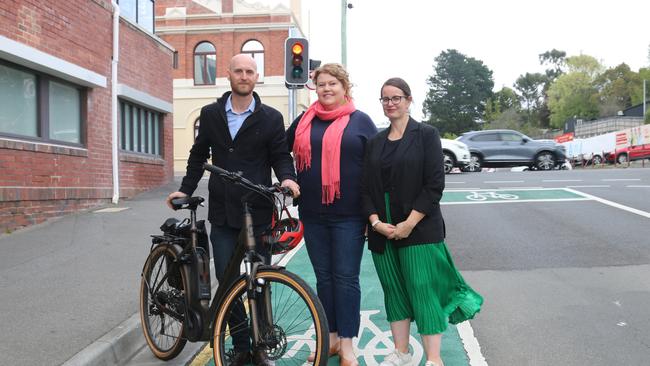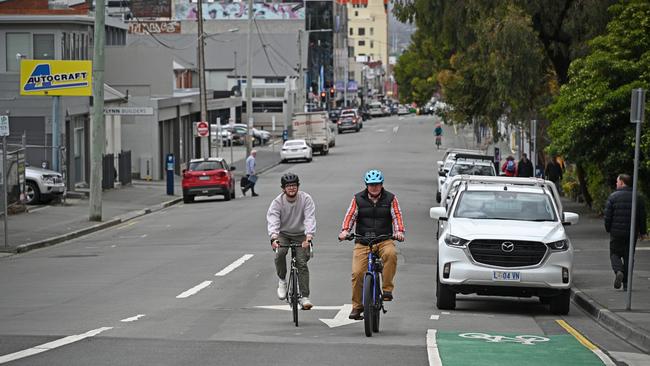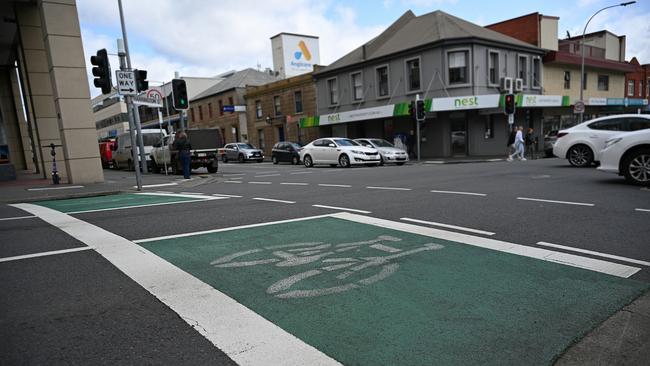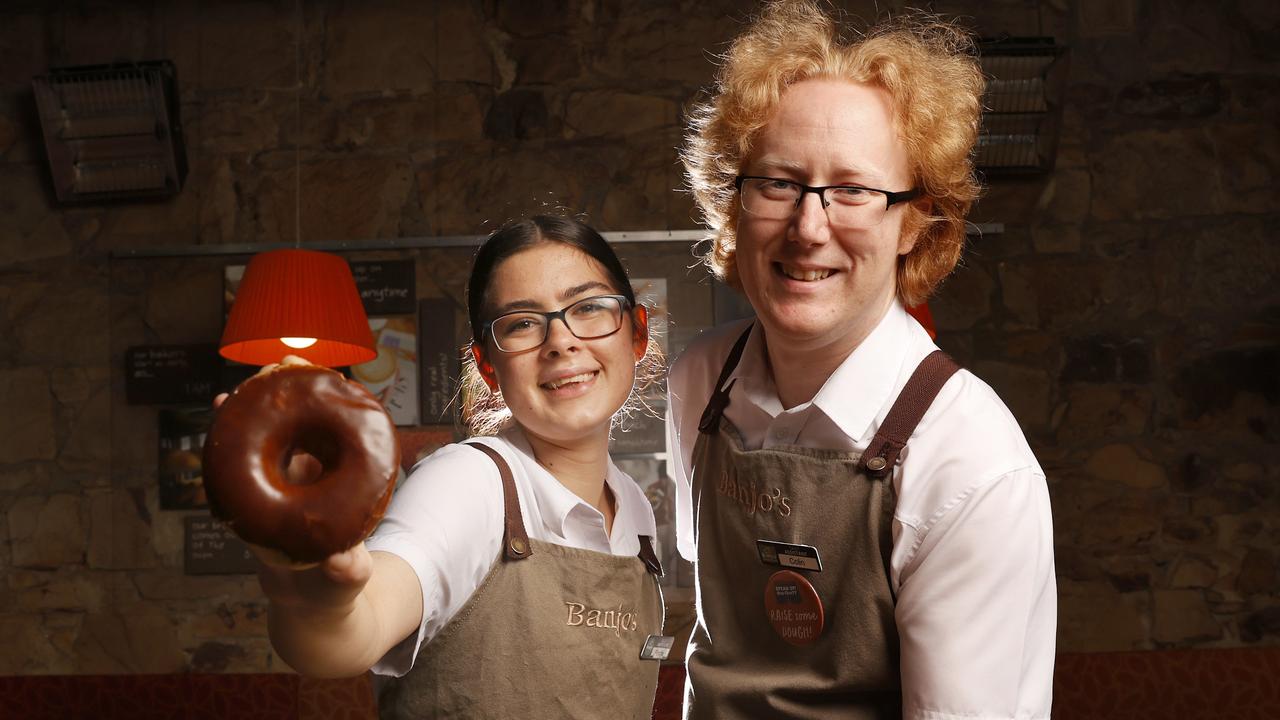Hobart City Council has endorsed plan for bike lanes and reduced speed limit on Collins Street.
The Hobart City Council has endorsed plans for new bike lanes and a reduced speed limit on a busy CBD street. Here’s what will be changing.

Tasmania
Don't miss out on the headlines from Tasmania. Followed categories will be added to My News.
On-street carparking spaces in Hobart’s CBD will be sacrificed for bikes after the Hobart City Council endorsed a trial of changes to Collins Street on Monday night.
Hobart Lord Mayor Anna Reynolds said the changes, including the separated bike lane on Collins street and a reduction in the speed limit, were the result of extensive engagement and would make the streets more “people friendly”.
The Collins Street project is linked to the Central Hobart Plan, which was endorsed by the council in May.
Following three months of stakeholder engagement, the trial was endorsed at the Hobart City Council meeting on Monday night, with several changes to the original plan.
The changes include returning 10 on-street parking bays, increasing the current accessible parking bays from two to five and retaining Victoria Street as a one-way route, saving seven car spaces.

Ms Reynolds said giving the public the choice for active transport was good for health, good for congestion and good for reducing pollution.
Owner of Collins St business, Ethical Choice Investments, Chris Lang said he cycles to and from work using the busy street most days.
He said he hoped the changes would see more people riding into the CBD from other areas.
“Whether for work or for shopping — that’s going to be good for everyone,” he said.
Associate professor at the Menzies Institute for Medical Research Verity Cleland said there would be health and wellbeing benefits, environmental benefits and broader community benefits to the changes.
“When people are out on foot and on bike they are much more likely to interact and engage with other people,” she said.
“We know that that’s really important in creating social connections and community cohesion.”

Associate Professor Cleland said a reduction of 10km/h on the speed limit can have an “enormous effect on the risk of dying in a car accident when a motor vehicle and bicycle is involved”.
She said at 30km/h the risk of a fatality was 6 per cent, at 40 the risk went up to 25 per cent and at 50 kilometres per hour the risk was up to 85 per cent.
“We are talking about an exponential increase in the risk of dying for a 10 kilometre increase in speed limit,” she said.
The trial changes are set to be implemented in early 2025, and a full report will be presented to the council after two years.
More Coverage
Originally published as Hobart City Council has endorsed plan for bike lanes and reduced speed limit on Collins Street.





